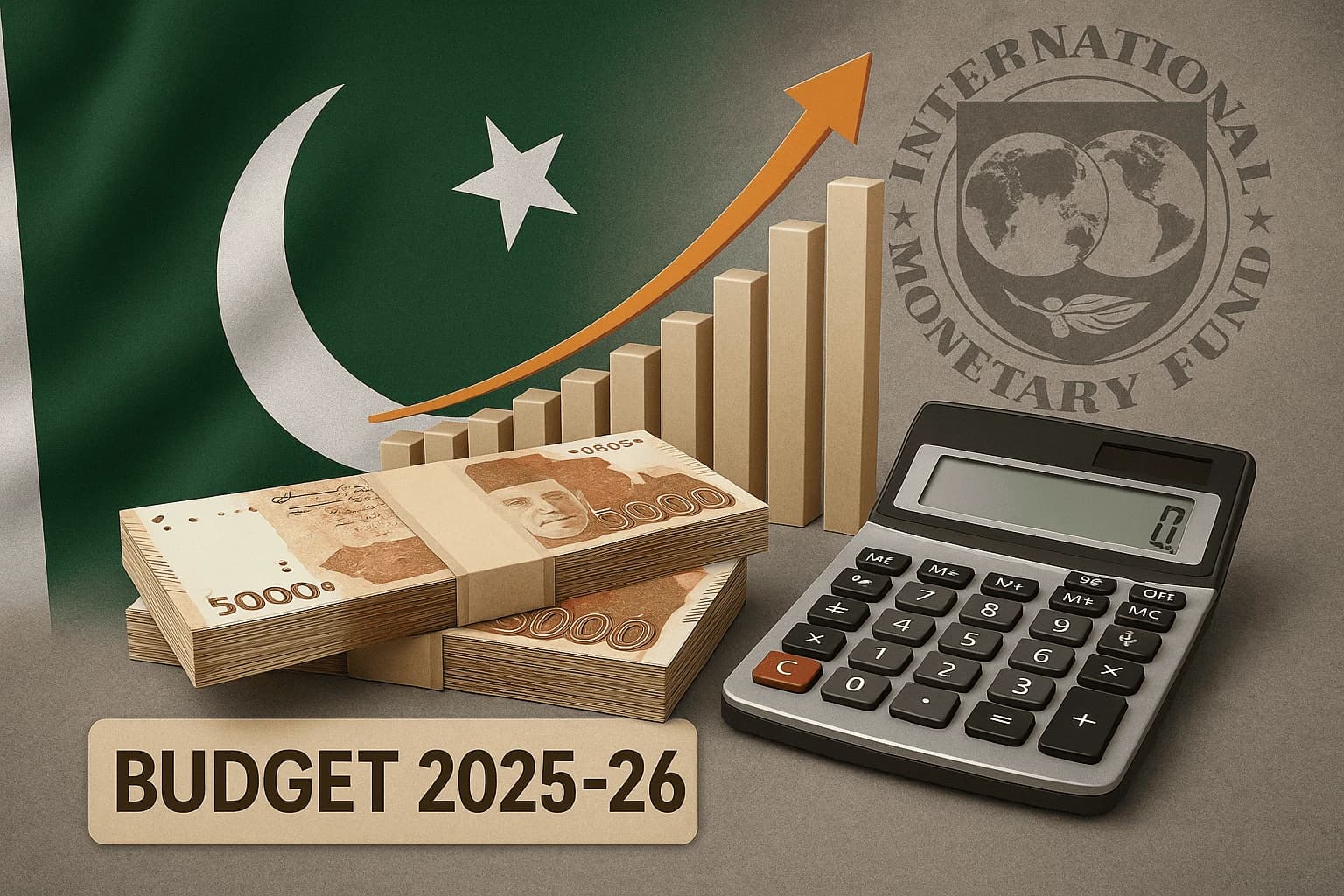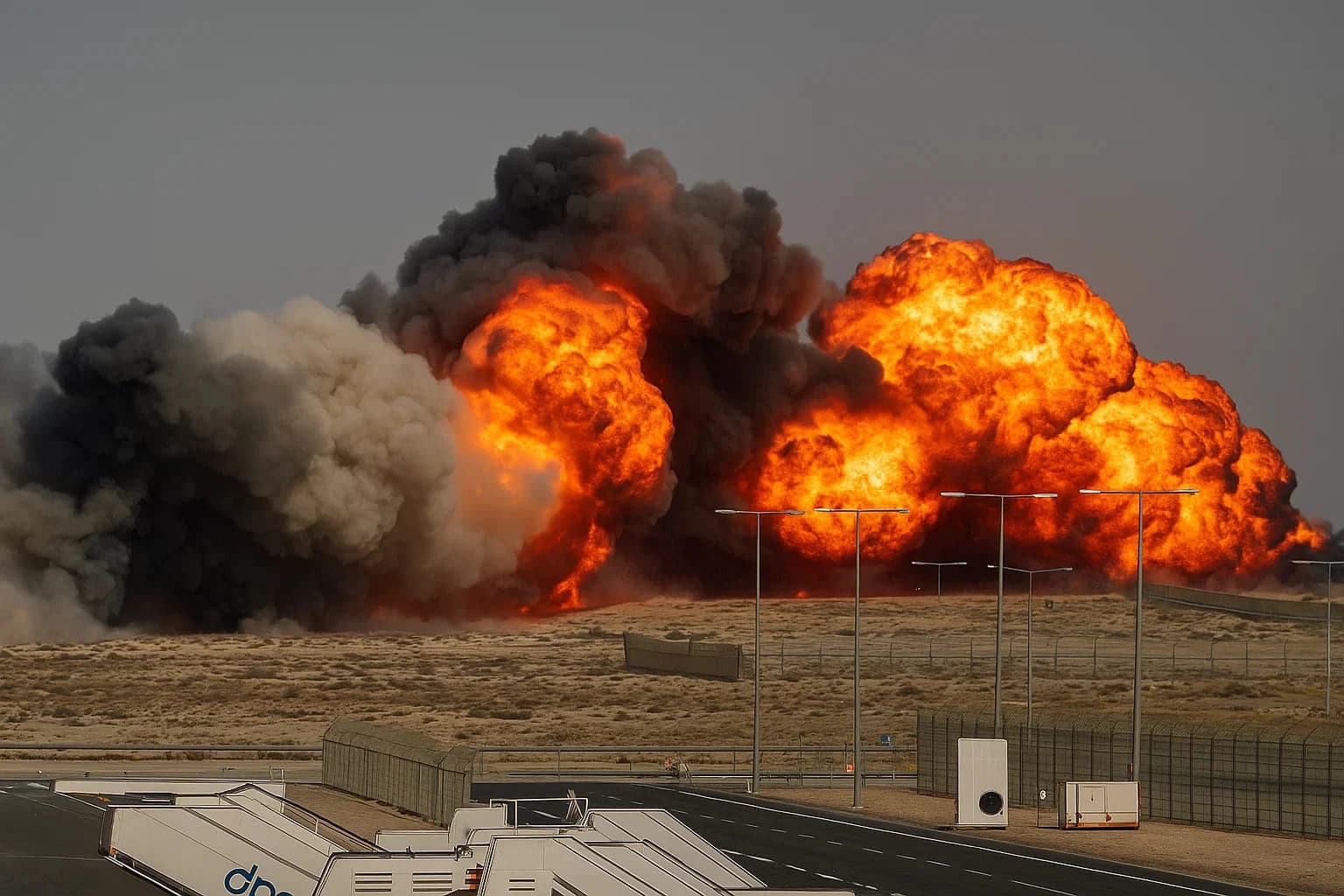© 2025 Roz UpdatesbyTETRA SEVEN

* All product/brand names, logos, and trademarks are property of their respective owners.
Pakistan's federal budget for 2025–26 has been unveiled, revealing a record outlay of Rs17.57 trillion. Amid economic challenges and external pressures, the budget underscores a significant increase in defence spending and the implementation of IMF-driven austerity measures. Prime Minister Shehbaz Sharif’s administration has defended the budget as a balanced approach to national security and economic sustainability, though critics argue it risks stifling growth and social progress.
The defence budget surge aligns with Islamabad’s longstanding security concerns, especially given tensions with India and Afghanistan. However, development spending has been curtailed, raising questions about Pakistan’s ability to meet its socio-economic targets. The government’s commitment to IMF-mandated reforms adds further strain, with new taxes and spending cuts expected to hit vulnerable populations the hardest.
The following sections delve into the details of the budget, its defence allocations, the IMF’s role, and the broader implications for Pakistan’s economy and society.
Pakistan’s 2025–26 budget allocates a substantial Rs2.2 trillion to defence spending, marking a 15% increase from the previous year’s allocation. This move comes at a time when security concerns remain paramount for the country, with military tensions along the borders and internal security challenges driving the narrative for an expanded military budget.
The budget document reveals that the bulk of this increased funding will go towards salaries, pensions, and operational costs, with a portion earmarked for modernizing military hardware and upgrading existing infrastructure. Defence analysts note that this signals a continued focus on military preparedness despite the economic strains Pakistan faces.
Comparatively, the defence allocation now stands at roughly 13% of the total budget, overshadowing sectors such as health and education. Critics argue that this imbalance risks undermining Pakistan’s long-term human development goals, especially in rural and underdeveloped regions.
The defence hike has had a knock-on effect on development and social sector spending. The Public Sector Development Programme (PSDP), which funds infrastructure, health, and education projects, saw its allocation trimmed to Rs950 billion from Rs1.1 trillion in the previous year.
Health and education budgets have been particularly affected, with many stakeholders warning of stalled reforms and deteriorating public services. Pakistan’s Human Development Index (HDI) ranking already lags behind many of its regional peers, and the current budget is unlikely to reverse this trend.
Economists have raised concerns that the focus on defence at the expense of development could exacerbate existing inequalities and stunt Pakistan’s growth potential in critical sectors.
Pakistan’s budget for 2025–26 is deeply influenced by its ongoing negotiations with the International Monetary Fund (IMF). With Islamabad seeking to secure a $7 billion loan to stabilize its economy, the IMF’s stringent conditions have shaped key fiscal decisions. These include the implementation of new taxes, the reduction of energy subsidies, and broader structural reforms to address Pakistan’s chronic fiscal deficit.
Finance Minister Muhammad Aurangzeb emphasized that these measures were critical to restoring macroeconomic stability and rebuilding investor confidence. However, the conditions have been met with skepticism from the public and political opposition, who fear that the cuts will disproportionately hurt lower-income groups and stifle growth.
Austerity measures dictated by the IMF have far-reaching implications for Pakistan’s economy. The budget projects a fiscal deficit of 5.8% of GDP, slightly lower than the previous year, but still a daunting figure given Pakistan’s economic fragility. Inflation, which averaged 27% in the last fiscal year, is expected to moderate slightly to around 22%, yet food and fuel price hikes remain a major concern for households.
Debt servicing continues to consume a significant portion of the budget, with Rs9.7 trillion allocated to repay domestic and foreign loans. Analysts warn that this leaves little room for growth-oriented spending and will likely deepen economic inequality.
Despite these challenges, the government has projected a GDP growth rate of 3.5%, hinging on the hope that IMF-backed reforms will unlock additional external financing and spur private investment.
The austerity-driven budget has already sparked controversy. Opposition parties have accused the government of bowing to IMF diktats at the expense of the common citizen, and protests have erupted in several cities demanding relief from soaring inflation.
Political analysts suggest that the budget’s reliance on IMF conditions could become a flashpoint in upcoming elections, with both major parties positioning themselves as champions of the poor and middle class. Meanwhile, economic experts argue that while IMF reforms are painful, they are necessary to avert a balance-of-payments crisis and keep Pakistan from default.
Pakistan’s 2025–26 budget, with its record Rs17.57 trillion outlay, encapsulates the country’s precarious balancing act between security imperatives and economic stability. The significant increase in defence spending, driven by persistent security concerns, has come at the expense of development and social sector budgets, raising alarms about long-term human development outcomes.
The IMF-driven austerity measures embedded in the budget represent an unavoidable reality for a country grappling with high debt servicing costs and a fragile economy. While the government argues that these reforms are critical to economic sustainability, the immediate impact on inflation, employment, and public services cannot be overlooked.
As Pakistan moves forward, the challenge lies in implementing these reforms while safeguarding the welfare of its most vulnerable citizens. The budget underscores the urgent need for robust, homegrown economic reforms that balance national security with sustainable human development. Whether Islamabad can meet these challenges without further social unrest remains to be seen, but the stakes for the country’s future could not be higher.

22 November 2025

18 November 2025
No comments yet. Be the first to comment!